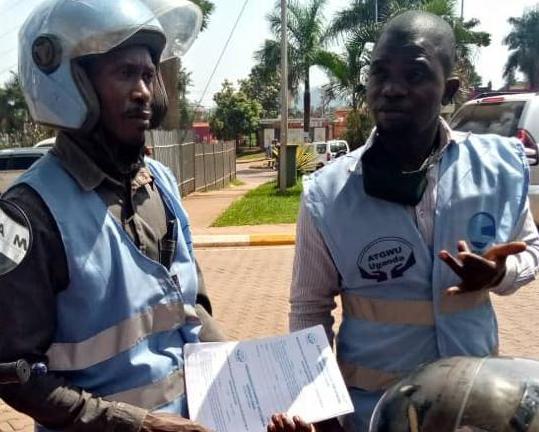A trade union guide to worker-led formalisation
RESPONDING TO THE CRISIS AND BEYOND: WHAT ARE THE CHALLENGES AND OPPORTUNITIES? COVID-19 EXPOSES A BROKEN SYSTEM The Covid-19 crisis has once again laid bare the vulnerabilities of the millions who earn a livelihood in the informal economy, and serves as a reminder of the crucial need to make the transition from the informal to the formal economy a priority area in national policies.’ ILO. 2020. Brief: COVID-19 Crisis and the Informal Economy, p8
The Covid-19 crisis has shone a light on the extreme vulnerability and precariousness of workers in the informal economy and the huge numbers of people dependent on informal work for their livelihoods. It has also compounded existing patterns of exploitation and exacerbated existing economic and gender inequalities. The problems associated with informal passenger transport are well-known: oversupply and poor maintenance of vehicles, chronic traffic congestion, pollution, poor services for passengers, and violence and corruption. Informal transport workers work long hours for low pay and face appalling working conditions, while women workers often find themselves in the lowest paid and most precarious jobs of all, such as cleaning and food vending. The industry is driven by the so-called target system, where vehicle crews, including motorcycle taxi riders, have to pay owners a fixed daily or weekly hire fee (the target) to operate the vehicle. In many cities, the vehicle owners have powerful interests, including in government, the police and the military. The target system results in extremely long working hours, aggressive driving, high accident rates, poor and very precarious livelihoods for the workforce, and a low quality service to passengers.
The industry is also a major source of carbon emissions. The threat of climate change is therefore increasing pressure on governments to take radical action to remove hundreds of thousands of old, badly maintained and polluting vehicles from the streets. Despite the problems associated with the informal transport industry, in cities where formal employment is scarce informal transport services provide much-needed jobs for millions of workers across the global South, and cheap and flexible transport for the millions more passengers who rely on the services.
PRIVATE CAR OWNERSHIP Private cars are a fundamental cause of congestion and environmental degradation. Informal transport systems (such as minibuses and taxis) are frequently blamed by the authorities and the media, but the major underlying problem for passenger transport is the dramatic rise in private car ownership. The pandemic is fuelling the trend towards cars as public transport capacity is reduced by safe distancing and passenger fear of infection.
Passenger numbers are in freefall, and some operators have had to suspend fare payments as a way to limit interactions between staff and passengers. Transit agencies that were already underfunded are seeing their revenue plummet. Even after the lockdowns come to an end, health concerns could cause people to favour private cars over public transport.’ World Bank. Earth Day 2020. Could COVID-19 Be the Tipping Point for Transport Emissions? April 22, 2020
An obvious solution is to restrict private car ownership or ban private cars from city centres but few governments or city authorities are prepared to take the political risk of alienating the expanding car-owning middle classes. This is a threat for all public transport workers, not just those in the informal economy, as well as a step backwards in the reduction of congestion and emissions. 11







